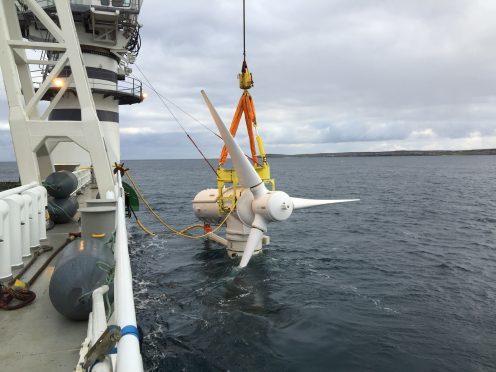Tidal power company Atlantis Resources has confirmed it is to go ahead with the next phase of its MeyGen project in the Pentland Firth.
Four 1.5MW tidal turbines will be deployed on the sea bed, adding to the four installed last month in the first stage of the scheme’s development.
The project was awarded more that £14million funding from the European Commission NER 300 programme, which supports innovative renewable energy technologies.
Yesterday the company said the new phase of work, known as Project Stroma, was an “important step in demonstrating progress to a lower cost of energy for tidal stream”.
The development is being carried out by Atlantis’ wholly-owned project company Stroma Tidal Power Limited (STPL).
Atlantis chief executive Tim Cornelius said: “The lessons we have learned from phase 1A and the confidence it has given to both us and our supply chain allow us to deliver significant improvements and refinements in this next phase.
“We believe these improvements will yield more electricity for each pound of investment and represent a material step down our cost reduction curve.
“STPL has been working towards this investment decision in line with the specified programme for the NER300 fund, which has awarded €16.8 million of grant support to Project Stroma.”
By the early 2020s MeyGen Limited intends to deploy up to 398MW of offshore tidal stream turbines to supply renewable electricity to the UK National Grid.
Project Stroma will use larger diameter rotors than those on the turbines already installed, to capture more energy from the tidal flow. Drilled foundation structures will be used instead of the intensive gravity foundations deployed in the first phase.
The turbines will be provided by Marine Current Turbines Limited, which was acquired by Atlantis from Siemens in 2015. They will be assembled at Nigg Energy Park, on the Cromarty Firth.
